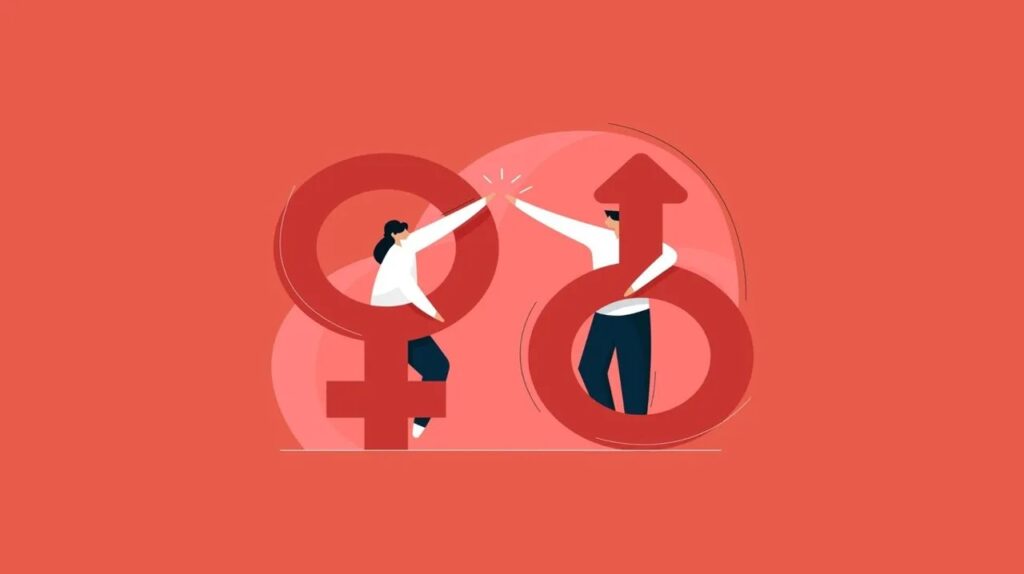The concerns related to women aren’t solely “women’s issues

In a recent dialogue between Shaili Chopra, founder of SheThePeople, and Susan Jane Ferguson, Country Representative at UN Women India, the focus was squarely on women from the global south. This conversation, part of the G20 Empower series, delved into a fundamental question: Why aren’t women’s issues exclusive to women? As we delve into their exchange, it’s clear that women’s concerns extend beyond gender boundaries; they are universal challenges that necessitate attention and action from all quarters. Let’s delve into the insights shared by Susan Ferguson, interwoven with key global data and the broader context of gender equality.
From confronting violence against women to the optimistic aspirations of the Sustainable Development Goals (SDGs), this conversation aspires to catalyze change, acknowledging both successes and hardships.
The Global Gender Gap: A Continuing Journey In response to Chopra’s query about why women’s issues transcend gender, Ferguson passionately asserted, “Because we inhabit the same world; men and women share this planet,” resonating deeply and underlining the interconnectedness that unites us all.
Ferguson’s sentiment reverberates against the backdrop of the 2023 Global Gender Gap Index, where no nation has achieved full gender parity. The index for 2023 indicates a modest improvement from the previous year, albeit a mere 0.3 percentage points. Despite advancements, progress remains slow, with an estimated 131 years required to bridge the gap entirely. While leading nations like Iceland, Norway, and Finland have closed over 80% of their gender gap, it underscores the imperative for global cooperation.
The global gender gap index, as Ferguson stresses, symbolizes our shared responsibility for each other’s welfare. “Women constitute 50% of the world’s population,” Ferguson emphasizes, reinforcing the notion that hindering the potential of half the population obstructs collective advancement.
While incremental strides in gender gap scores signify progress, the road to full parity remains winding. Yet, many nations grapple with persistent challenges, with some even regressing in specific areas. While health, survival, and education demonstrate notable progress, economic participation, political empowerment, and the time to parity demand concerted action.
Gender equality isn’t solely a women’s concern; it’s a universal imperative for progress. “If we fail to realize our full potential, it holds everyone back,” Ferguson profoundly states, urging society to acknowledge the interconnectedness defining our collective journey.
The Shadow of Violence The alarming statistics – 736 million women enduring intimate partner violence and familial homicides – cast a chilling shadow. In 2021 alone, over 45,000 women and girls fell victim to intimate partner or familial violence. While the majority of female homicides stem from intimate partner violence, a mere 11% of male homicides occur within the private sphere.
Ferguson’s words resonate deeply when examining the pervasive issue of global violence against women. “Historically, the fight against issues like safety, such as domestic violence, has been spearheaded by women, but often, it’s men who perpetrate these crimes,” she articulates.
Despite global efforts to address these challenges, a gap persists in seeking assistance. Laws, while in place, often fall short of international standards, leaving women vulnerable. Shockingly, less than 40% of women experiencing violence seek help, predominantly turning to family and friends, while formal institutions such as police and health services are rarely approached. Even more disturbingly, fewer than 10% of those seeking help report incidents to the police, highlighting systemic failures in providing a secure environment for victims.
Ferguson’s call to action echoes loudly as we confront the stark reality: intimate partner violence affects almost one in three women. “For women to be safe, men must change. We are intimately connected in all aspects of our lives. These are shared issues that require both women and men to make changes in their lives and spheres of influence.”
Beyond Women’s Issues: Embracing Gender for Collective Progress The State of World Population Report 2000 underscores the disparity, emphasizing that “gender issues” transcend mere “women’s issues.” However, in 2023, the grim reality persists: at the current pace, full parity remains a distant dream, necessitating a staggering 131 years to achieve.
Aligned with the Sustainable Development Goals, UN Women asserts that gender discrimination obstructs not only women but the entire world. The 2030 Agenda, embraced by global leaders in 2015, envisions an inclusive future, with each of the 17 goals intricately linked to achieving gender equality and women’s empowerment.
The journey to gender equality intertwines with our collective commitment to dismantling barriers, challenging norms, and fostering an inclusive world where women’s concerns become everyone’s concern. In Susan Jane Ferguson’s words, “We share a world,” and in this shared world, the pursuit of gender equality is a shared responsibility.
When Women Lead Recent years have demonstrated that women leaders possess the capacity to systematically transform the world, one perspective at a time. This Women’s Day, Ferguson amplifies this narrative with real-life anecdotes of women leaders who have catalyzed remarkable changes nationwide. “In celebration of India’s G20 Presidency for 2023 and its focus on women-led development (WLD), UN Women India has announced the launch of an innovative project, ‘हम | When Women Lead.’ This initiative aims to showcase the extraordinary stories of 75 women leaders from diverse backgrounds and fields who have spurred sustainable and transformative change across India.”
Supported by the Ford Foundation, this UN Women project spotlights women from various geographies and socio-economic strata, representing a wide spectrum of thematic areas – from agriculture to technology, arts to environmental stewardship. An all-female documentation and design team, comprising nine photographers and four writers, has meticulously crafted these stories into a captivating Coffee Table Book, a testament to the remarkable transformations these leaders have initiated.
Repurposed article originally published in She the People









